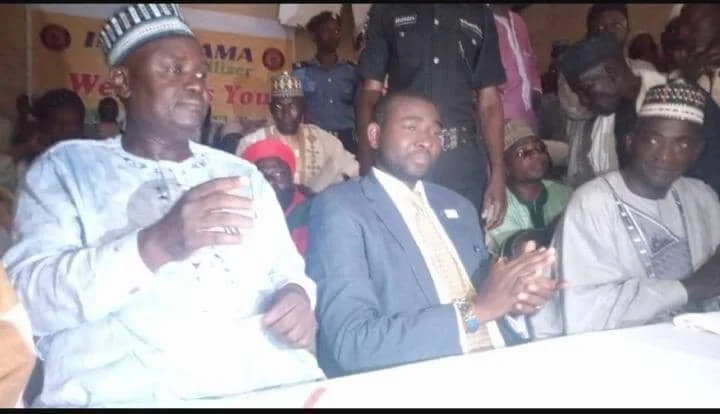Nigerian Magistrate Umar Faruk Kabir Works To Administer A Criminal Justice System Without Fear Or Favor
2018 Mandela Washington Fellow Umar Faruk Kabir grew up in a neighborhood in Northern Nigeria, surrounded by a large extended family. As a child, Umar spent his days going to school and working on his family’s farm. Umar attended Ahmadu Bello University in Zaria, Nigeria, where he received a law degree, and after passing the bar exam in 2010, he became a qualified and solicitor of the Supreme Court of Nigeria. He started his career as a legal assistant with the Kaduna State judiciary for the district’s chief magistrate in 2011, before eventually being appointed a judge. Today, Umar has an established career as a senior magistrate in Funtua, Katsina State, Nigeria, where he presides over both criminal and civil cases.
As the youngest of his colleagues, Umar says he is motivated to change the status quo. He is most passionate about alternative dispute resolution and prison reform, as well as the elimination of corruption within the Nigerian judicial system to ensure that all parties receive fair and just trials.
Umar strongly believes that alternative conflict resolution in the Nigerian judicial system is a beneficial practice for decreasing future crime. He describes the Nigerian legal system as primarily punitive; therefore, he employs alternative dispute resolution in certain situations where a person needs to be reformed but not necessarily sentenced. “When you need to reform somebody, you don’t need to always have somebody to be sentenced. You need to have settlement or forgiveness, a kind of forgiveness,” says Umar. “We can offer the option for settlement between the parties. And they’re not necessarily to be punished for the offense when the complainant is looking for what he has been cheated on.”
Umar is equally passionate about reducing overcrowding in the prison system. He is working to address this issue by setting fair bail amounts to those facing trial, so that prisons do not become overpopulated with those awaiting their day in court because they cannot afford bail.
Umar is also interested in the application of information and communication technologies (ICT) within the legal field. He is interested in exploring ways to incorporate ICT into his profession to enhance his work.
As a public servant, Umar believes that it is his duty to do what is best for the people he serves, even if it conflicts with his own personal interests. Though as a judge he must remain impartial, Umar admits that he is still human and notes the importance of treating defenders with humility. Even when he must convict someone, he says offenders are usually grateful for the way he treated them during their sentencing. “I would like to see that whenever a party is brought before me, you get justice. If you are in prison for an offense that’s supposed to be punished with imprisonment, you see what I give you as what you deserve,” says Umar.
Additionally, Umar says that he is constantly seeking knowledge of the law and is not afraid to ask for assistance from his staff or law clerks. In his opinion, it is his humility, compassion and desire for knowledge that makes him a good public servant.
Umar shared his hopes for the 2015 Nigerian election: He hoped the election would be free of fear and violence and that Nigerians would vote faithfully.
Lastly, Umar relayed an important message to the YALI Network about justice, which he defines as giving what is due, either to an individual or to the society.
“We need to all work towards justice and peace,” Umar says. “Justice and peace can work hand in hand. You cannot have peace without justice, and you cannot have justice without peace. So, when I am working, I try to make, to see that justice is done or it is maintained in the society.”


